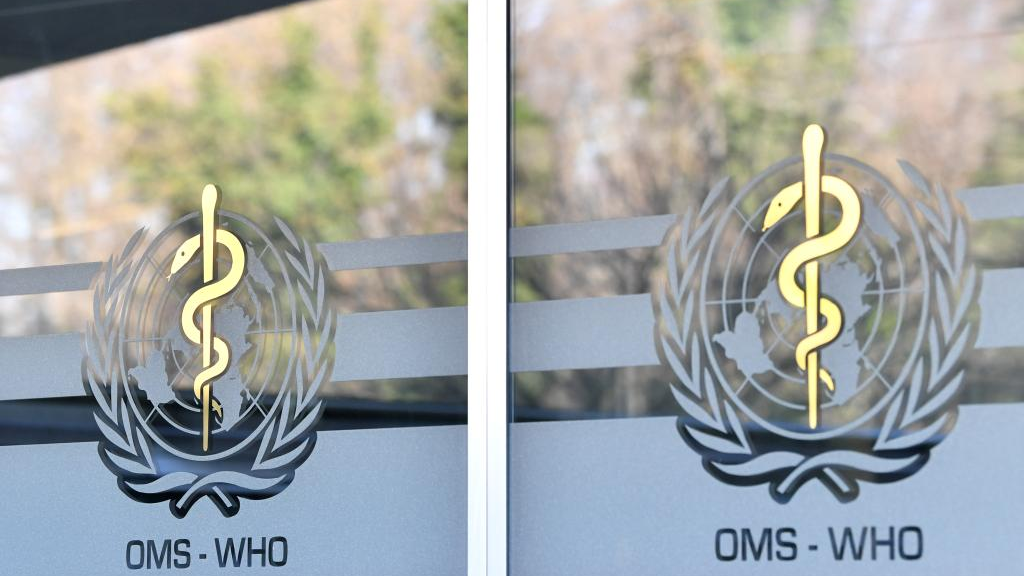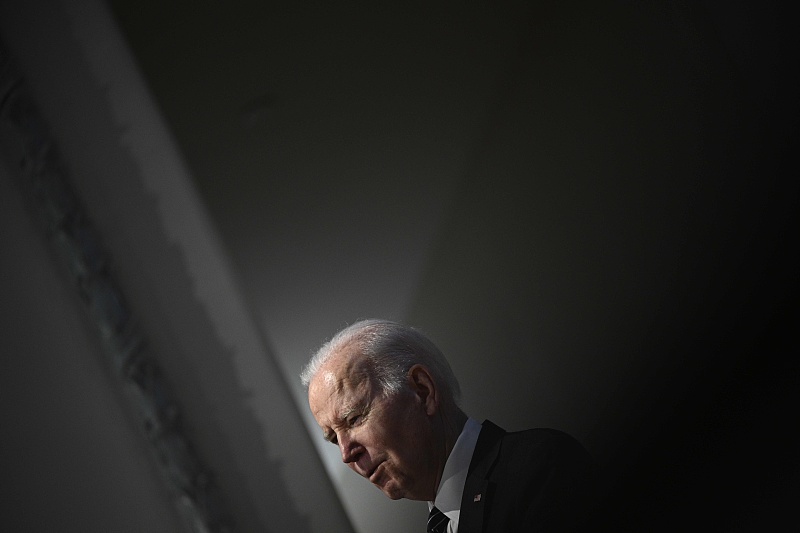
Logos of the World Health Organization (WHO) at the WHO headquarters in Geneva, Switzerland, January 30, 2023. /Xinhua
Logos of the World Health Organization (WHO) at the WHO headquarters in Geneva, Switzerland, January 30, 2023. /Xinhua
Editor's note: Jiang Shisong is a research fellow at the School of Law, Chongqing University. The article reflects the author's opinions and not necessarily the views of CGTN.
The fourth meeting of the Intergovernmental Negotiating Body (INB) was held from February 27 to March 3, marking a significant step forward in drafting a new international instrument for pandemic prevention, preparedness, and response.
The INB was established by the World Health Assembly under the World Health Organization's (WHO) Constitution in December 2021, after the COVID-19 pandemic exposed the shortcomings of the existing legal framework for global health emergencies. Based on an extensive consultation process spanning 2022, the Zero Draft of the pandemic treaty was released on February 1, and its content was discussed during the latest INB meeting.
While delegates in Geneva held in-depth chapter-by-chapter discussions on the Zero Draft, U.S. senators were politicizing the pandemic by claiming the WHO's pandemic treaty would encroach upon U.S. sovereignty. Senate Republicans, led by Senator Jim Risch of Idaho, warned on February 28 that they would oppose any move by the Joe Biden administration to adopt an upcoming WHO treaty on the pandemic response without Senate approval.
Additionally, Senator Ron Johnson has recently introduced the so-called No WHO Pandemic Preparedness Treaty Without Senate Approval Act, the original version of which surfaced in May 2022, to hold back the pandemic treaty process. This bill is cloaked in the guise of protecting Americans.
Yet upon closer examination, it's rife with bias, misconception, and disregard towards the valuable contributions made by the WHO and countries such as China in responding to the COVID-19 pandemic.
Are these "patriotic" politicians defending the health and well-being of Americans? If so, why has a nation with some of the best healthcare facilities and resources in the world become one of the worst affected countries hit by COVID-19, with 102 million confirmed cases and nearly 1.1 million deaths as of February 2023? The tragic numbers expose that the country's domestic response to the pandemic has been plagued by a lack of coordination, as well as a politicization of public health measures, and spread of misinformation.
When the pandemic hit, the Donald Trump administration downplayed the severity of the situation and abdicated its responsibility to lead the national response, leaving Americans to fend for themselves amid racism and conspiracy theories.
The Biden administration is no different. By deceiving voters with the goal of ending COVID-19, Biden has been forced to make it one of his presidency's most crucial political tasks. Despite continuous reports of confirmed cases and deaths, Biden declared on September 18, 2022, that "the pandemic is over," which was criticized for contributing to its surge.

U.S. President Joe Biden speaks at the Department of Homeland Security headquarters in Washington, D.C., March 1, 2023. /CFP
U.S. President Joe Biden speaks at the Department of Homeland Security headquarters in Washington, D.C., March 1, 2023. /CFP
Biden is still scurrying to end the public health and national emergencies on May 11, a decision announced on the same day that the WHO reaffirmed COVID-19 as a public health emergency of international concern. Apparently, Biden had initially planned to announce this end date later. Nevertheless, he accelerated the announcement on account of pressure from House Republicans and Democrats who want to vote for measures to end the emergencies, indicating that the decision was not based on the people's interest again.
The disastrous mishandling of the pandemic by the U.S. has not only caused the loss of countless American lives but has also unleashed devastating global consequences. The U.S. has been weaponizing the pandemic at the international level, damaging the global health security architecture centering around the WHO.
The world has witnessed various indecent actions taken by Washington during the pandemic, including the withdrawal from the WHO and imposition of travel bans on specific countries. It's disappointing to see the U.S., a country that has historically played a leadership role in global health, taking such a myopic and isolationist approach to the pandemic response.
The pandemic treaty could have been an opportunity for the U.S. government's redemption, as it has been hailed as a potential "once-in-a-lifetime" instrument. Nonetheless, many signs indicate that the ruling elites in Washington have been veering down the wrong path. In retrospect, the idea of constructing a pandemic treaty was already met with U.S. opposition starting from early 2021, nearly derailing the entire international lawmaking enterprise before it had begun.
Now, it's ironic to see the contrast between the worldwide consensus reached at the INB's fourth meeting on addressing deficiencies in our collective capacity to prevent, prepare, and respond to future pandemics and the domestic uproar in the U.S. over alleged infringements by the WHO on sovereignty.
From a particular perspective, one could almost sympathize with the resistance from the U.S. to the pandemic treaty. After all, the very regulations proposed in the treaty would have called out the egregious errors committed by the U.S. government in managing COVID-19, resulting in a pandemic of inequality and chaos. Every inch of progress towards the treaty should have sent shivers of fear and embarrassment down the spine of the U.S. government, while the world would be all the more reminded of America's staggering debts to global health.
(If you want to contribute and have specific expertise, please contact us at opinions@cgtn.com. Follow @thouse_opinions on Twitter to discover the latest commentaries on CGTN Opinion Section.)